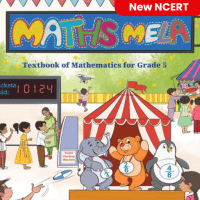Class 5 Exam > Class 5 Questions > Fill in the blank with a subordinating conjun...
Start Learning for Free
Fill in the blank with a subordinating conjunction:
"We stayed inside _____ it was raining."
"We stayed inside _____ it was raining."
- a)or
- b)because
- c)but
- d)yet
Correct answer is option 'B'. Can you explain this answer?
Most Upvoted Answer
Fill in the blank with a subordinating conjunction:"We stayed inside _...
Understanding Subordinating Conjunctions
Subordinating conjunctions are words that connect an independent clause with a dependent clause. They help show the relationship between the two clauses, such as cause and effect, time, or condition.
Identifying the Correct Answer
In the sentence "We stayed inside _____ it was raining," we need to fill in the blank with a subordinating conjunction that appropriately links the two ideas.
Options Analysis
- a) or
This is a coordinating conjunction, which connects two equal parts. It does not fit here because we need a subordinating conjunction.
- b) because
This is the correct choice. It shows the reason for staying inside: "We stayed inside because it was raining." It indicates that the action (staying inside) is a result of the condition (raining).
- c) but
This is also a coordinating conjunction. It would imply a contrast, which doesn’t fit the context of needing to stay inside due to rain.
- d) yet
Similar to "but," this conjunction suggests a contrast and does not logically fit in this sentence.
Conclusion
The best fit for the blank in the sentence is option b) because, as it clearly explains the reason for staying inside. Using subordinating conjunctions effectively enhances clarity and comprehension in writing.
Subordinating conjunctions are words that connect an independent clause with a dependent clause. They help show the relationship between the two clauses, such as cause and effect, time, or condition.
Identifying the Correct Answer
In the sentence "We stayed inside _____ it was raining," we need to fill in the blank with a subordinating conjunction that appropriately links the two ideas.
Options Analysis
- a) or
This is a coordinating conjunction, which connects two equal parts. It does not fit here because we need a subordinating conjunction.
- b) because
This is the correct choice. It shows the reason for staying inside: "We stayed inside because it was raining." It indicates that the action (staying inside) is a result of the condition (raining).
- c) but
This is also a coordinating conjunction. It would imply a contrast, which doesn’t fit the context of needing to stay inside due to rain.
- d) yet
Similar to "but," this conjunction suggests a contrast and does not logically fit in this sentence.
Conclusion
The best fit for the blank in the sentence is option b) because, as it clearly explains the reason for staying inside. Using subordinating conjunctions effectively enhances clarity and comprehension in writing.
Free Test
FREE
| Start Free Test |
Community Answer
Fill in the blank with a subordinating conjunction:"We stayed inside _...
"Because" is the correct subordinating conjunction, showing the cause of staying inside. It explains why the action happened.

|
Explore Courses for Class 5 exam
|

|
Question Description
Fill in the blank with a subordinating conjunction:"We stayed inside _____ it was raining."a)orb)becausec)butd)yetCorrect answer is option 'B'. Can you explain this answer? for Class 5 2025 is part of Class 5 preparation. The Question and answers have been prepared according to the Class 5 exam syllabus. Information about Fill in the blank with a subordinating conjunction:"We stayed inside _____ it was raining."a)orb)becausec)butd)yetCorrect answer is option 'B'. Can you explain this answer? covers all topics & solutions for Class 5 2025 Exam. Find important definitions, questions, meanings, examples, exercises and tests below for Fill in the blank with a subordinating conjunction:"We stayed inside _____ it was raining."a)orb)becausec)butd)yetCorrect answer is option 'B'. Can you explain this answer?.
Fill in the blank with a subordinating conjunction:"We stayed inside _____ it was raining."a)orb)becausec)butd)yetCorrect answer is option 'B'. Can you explain this answer? for Class 5 2025 is part of Class 5 preparation. The Question and answers have been prepared according to the Class 5 exam syllabus. Information about Fill in the blank with a subordinating conjunction:"We stayed inside _____ it was raining."a)orb)becausec)butd)yetCorrect answer is option 'B'. Can you explain this answer? covers all topics & solutions for Class 5 2025 Exam. Find important definitions, questions, meanings, examples, exercises and tests below for Fill in the blank with a subordinating conjunction:"We stayed inside _____ it was raining."a)orb)becausec)butd)yetCorrect answer is option 'B'. Can you explain this answer?.
Solutions for Fill in the blank with a subordinating conjunction:"We stayed inside _____ it was raining."a)orb)becausec)butd)yetCorrect answer is option 'B'. Can you explain this answer? in English & in Hindi are available as part of our courses for Class 5.
Download more important topics, notes, lectures and mock test series for Class 5 Exam by signing up for free.
Here you can find the meaning of Fill in the blank with a subordinating conjunction:"We stayed inside _____ it was raining."a)orb)becausec)butd)yetCorrect answer is option 'B'. Can you explain this answer? defined & explained in the simplest way possible. Besides giving the explanation of
Fill in the blank with a subordinating conjunction:"We stayed inside _____ it was raining."a)orb)becausec)butd)yetCorrect answer is option 'B'. Can you explain this answer?, a detailed solution for Fill in the blank with a subordinating conjunction:"We stayed inside _____ it was raining."a)orb)becausec)butd)yetCorrect answer is option 'B'. Can you explain this answer? has been provided alongside types of Fill in the blank with a subordinating conjunction:"We stayed inside _____ it was raining."a)orb)becausec)butd)yetCorrect answer is option 'B'. Can you explain this answer? theory, EduRev gives you an
ample number of questions to practice Fill in the blank with a subordinating conjunction:"We stayed inside _____ it was raining."a)orb)becausec)butd)yetCorrect answer is option 'B'. Can you explain this answer? tests, examples and also practice Class 5 tests.

|
Explore Courses for Class 5 exam
|

|
Signup for Free!
Signup to see your scores go up within 7 days! Learn & Practice with 1000+ FREE Notes, Videos & Tests.


















